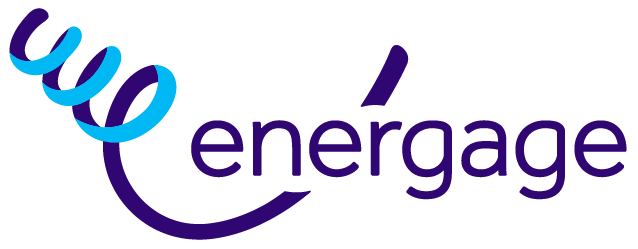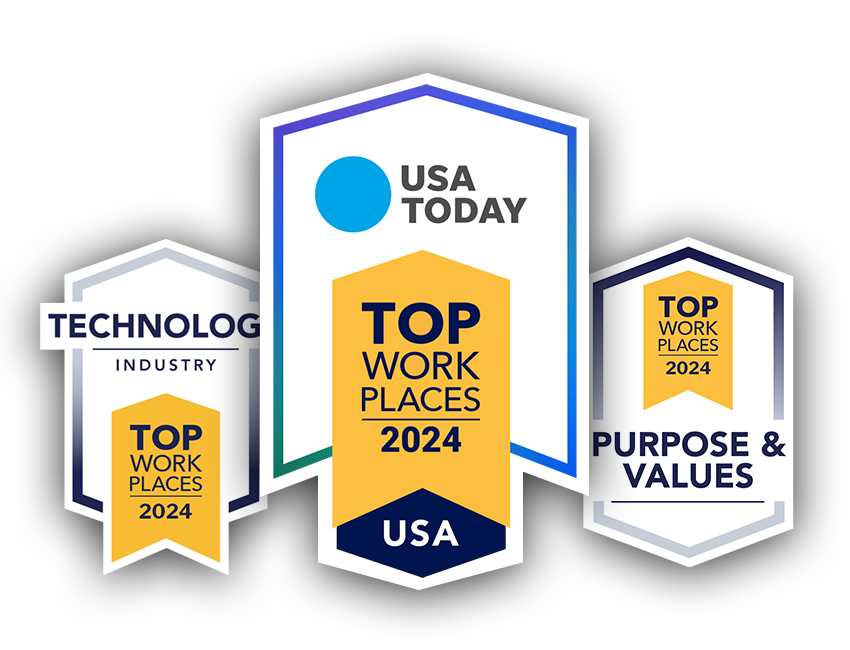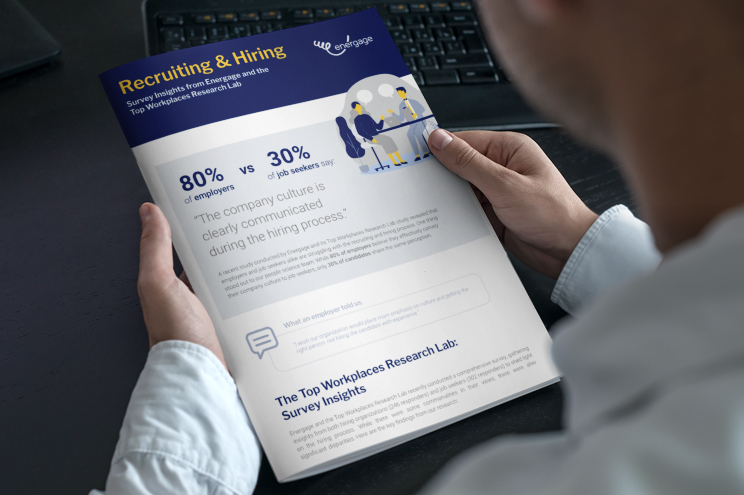This holiday season, give your employees the gift that truly matters: the opportunity to be heard.
Employee feedback and listening aren’t just nice-to-haves — they’re essential for building a thriving workplace. When you take the time to survey your team, you gain invaluable insights into their needs, priorities, and frustrations. Acting on their feedback empowers you to:
- Build a workplace where employees feel valued and engaged.
- Strengthen your culture and boost retention.
- Show your team that their voices lead to real change.
Here’s what we learned from insights captured by the Energage Workplace Survey:
Better benefits
Employees consistently report some of the lowest scores on benefits: only 56% agreed that their benefits package is good compared to others in their industry. Benefits make up an important part of employee compensation. Still, they can often be confusing and can change in multifaceted ways from year to year. Health benefits, in particular, are a frequent source of frustration. They can be difficult to navigate, expensive, and affect not only employees but also their partners and families in various ways.
When asked how their benefits could be improved, employees said:
- “A better health insurance plan. It’s one of the only negatives about the job. Costs keep going up, and coverage keeps getting worse.”
- “Actual sick pay/time. I hate having to use my PTO when I am out sick.”
- “401K Match and Paid Holidays are lacking.”
- “I’m someone who needs regular doctor visits, and I’m on a medication that isn’t covered by our insurance, even after multiple appeals. My healthcare is very costly, and I’m in a worse financial position because of it, even though my salary is higher than my previous position. A more affordable plan would make a world of difference.”
More $$$
After a difficult couple of years struggling with inflation, layoffs, and other employees leaving their industry, surveyed employees are clear: they need more pay. Less than two-thirds (64%) say their pay is fair for their work. That could reflect several factors: rising cost of living, doing more work without additional compensation, seeing new hires or coworkers paid more for similar work, large disparities between leader and team member compensation, and many other issues. While not all organizations can afford to pay their employees more, it’s worth noting that employees will notice if record profits are reported, but their paychecks remain the same.
When discussing pay, employees mentioned the following:
- “After going above and beyond continuously, the company has yet to raise my pay. It is hiring new employees at the same pay rate.”
- “After two years of flat or down comp, people consider this year a make-or-break one. Need to pay top performers, or they will leave.”
- “Although I am a major headliner in my division, I have not had a pay raise in 3 years. In that time, inflation has eroded 20% of my salary.”
- “I need to start making a higher salary to support my family.”
A different job
64% of employees said they were not considering searching for a better job in the past month … which means the other 36% may be seriously considering it. This statement tends to result from many other factors, including the previously mentioned pay and benefits. But it’s also about the relationship with their manager, satisfaction with day-to-day work — and the overall workplace experience.
Even if your employees aren’t actively job hunting, are only exploring internal opportunities, or can’t find a better option elsewhere, it’s crucial to think about the costs of replacing them if they leave.
When asked what would make them less likely to leave their job or company, employees said:
- “Address staff burnout.”
- “Adequate promotion and compensation for the responsibilities and workload I am continuously given. Less work to support a reasonable workday.”
- “Advancement opportunities are lacking.”
- “An overhaul of the benefits package is needed.”
- “Any sort of recognition for the hard work we put in. We rarely get told we are doing well or have done well.”
Improved communication
Only 69% of employees feel well-informed about important decisions at their company, indicating a disconnect between management and employees. While this disconnect is often unintentional, it can make the difference between employees being on board or resistant to a change.
Employees may feel in the dark about decisions, including whether leaders considered the impact on customers, a particular product, front-line employees, etc. And when information is lacking, employees may fill in the gaps themselves and are likely to get some of it wrong. Keeping employees informed is cheap, but it takes time and practice. Leaders should be encouraged to reiterate important information multiple times and through multiple channels, to discuss it with their direct reports, to encourage those direct reports to discuss it with their teams (including how it will impact them), to encourage questions and feedback from all employees, and to emphasize the reasoning behind any decisions being made.
When asked what they would like to be more informed about, employees mentioned:
- “Changes in general. There always seems to be a lot of rumors that circulate before something, but when a decision happens, there seems to be a lack of information regarding it.”
- “Changes that impact my team. Decisions are being made and pushed down without dialogue or Q&A or plan in place.”
- “Company decisions and the thought process behind them. Why did they choose to support this project over this one? Why not make the investment for long-term improvements?”
- “Company direction, company performance against overall goals.”
- “Big company announcements are rarely released to the company before/concurrently with public announcements. Often, employees are learning about company announcements through our social media or other channels hours/days before they are officially announced in an internal memo. Or we are required to look through our public SEC filings.”
More effective meetings
69% of employees believe that meetings make good use of their time. Still, if you hear, “This meeting could’ve been an email,” it might be time to reflect on the meeting culture at your organization and commit to a reset.
As we head into the new year, now is a perfect time to encourage leaders and managers to reflect on meetings. Here are some important questions to consider:
- Are meetings scheduled for the right group of people and at the right cadence?
- Can anyone be removed from the meeting without losing important input?
- Can some meetings be consolidated, shortened, or even eliminated?
- Do meetings have agendas to keep things on track?
- Are important decisions or conversations documented and shared?
- Are meetings canceled if there isn’t anything important to discuss?
- Do meetings start and end on time?
When asked how meetings could be improved, employees commented:
- “A lot of the time, these are things that can be handled via email.”
- “As a manager, I have too many meetings. I spend at least 3/4 of my day in meetings.”
- “A meeting should have a specific purpose or goal, not just a meeting to fill a calendar or requirement. Meetings disrupt the flow of the day.”
- “A number of meetings fail to capture/document action items and assign accountability. This will often result in several follow-up meetings.”
- “A lot of the time, they are held to check a box rather than cancel or give important, valuable learning experiences.”
Surveying your employees is more than just gathering feedback — it’s a way to show them that their voices matter. By listening to what’s important to them, you can identify meaningful ways to enhance their experience, from improving benefits and pay to addressing communication gaps and optimizing workplace practices. When employees feel heard, they are more engaged, more loyal, and more committed to your organization’s success.
Ask your employees what matters most to them
This holiday season, give your employees the gift of being truly valued — start by surveying them to uncover what matters most. It’s the first step toward building a people-first culture where employees thrive, and your organization stands out.


